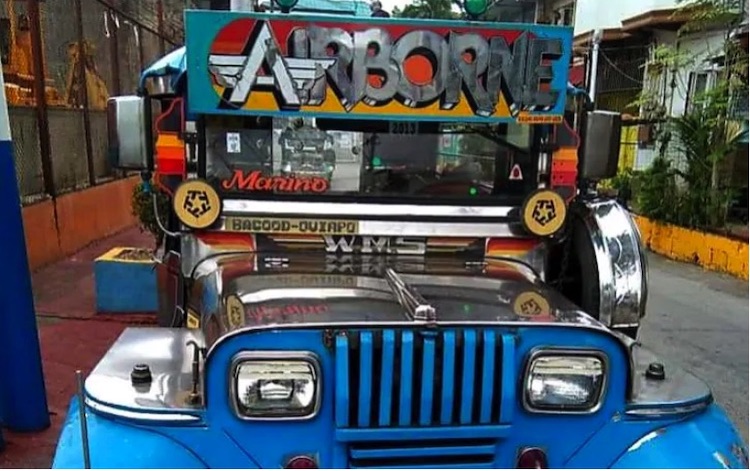Viewpoint by Champa Patel*
LONDON (IDN) – Southeast Asia already had a poor human rights record before the COVID-19 outbreak. Despite ASEAN’s rhetoric on democratic values and human rights, illiberal democracies have been on the rise, putting fundamental freedoms in the region under pressure. Most countries across the region continue to criminalise dissent using draconian often colonial-era laws, or new repressive legislation. COVID-19 has intensified these trends.
International standards require that restrictions on public health grounds must be enacted with clear objectives and be proportionate, non-discriminatory and limited in duration, yet many Southeast Asian governments have passed emergency measures with no sunset clauses, and with vague provisions allowing for excessive interpretation. Leaders are increasingly using emergency powers to bypass the usual checks and balances, reducing the opportunity for scrutinisation of new measures.
In the Philippines, President Duterte passed Proclamation No 922, stating that the public health emergency measures are to remain in force until lifted or withdrawn by his office. He also deployed police and military forces to enforce emergency measures, issuing the military with shoot-to-kill orders against those violating lockdown rules.
Other countries in the region have passed a range of laws that restrict freedom of information, expression and assembly. Thailand declared a state of emergency from late-March to late-April 2020. The military government exercised special powers that included prohibitions on movement and assembly and restricted the free flow of information. These measures were often counterproductive to combatting COVID-19. In Bangkok, people were arrested for trying to distribute food and sanitisers.
Some countries in the region did not enact new measures but simply deployed existing repressive laws. Indonesia’s 2008 Law on Electronic Information and Transactions enabled the government to extensively censor online content. Such laws have led to ludicrous cases that go beyond proportionate measures. A journalist in Cambodia was arrested for quoting verbatim comments about COVID-19 made by Prime Minister Hun Sen. In Myanmar, street artists have been arrested for painting murals of the disease and its impact on society.
Governments in the region have targeted those critical of their responses in the guise of controlling ‘fake news’. In Vietnam, several hundred people faced fines for critical content on Facebook, with authorities slowing access to the platform for seven weeks until Facebook agreed to block anti-government content to its users. In Indonesia, individuals have been arrested under various communication laws for criticising the government’s response.
Another tactic deployed has been restricting access to the internet. Myanmar’s internet shutdown greatly impacted an estimated 1.4 million people across Rakhine and Chin states, preventing local populations from accessing necessary information about the pandemic.
Emergency measures to combat COVID-19 have also raised concerns about data harvesting, surveillance and privacy. Risk consultancy Verisk Maplecroft’s Right to Privacy Index shows that Asia was one of the world’s highest-risk regions, with COVID-19 surveillance measures further deteriorating privacy rights. The index identifies Cambodia, Thailand and the Philippines as countries within the region that have problematic surveillance measures.
Political opportunism has worrying implications as authoritarian leaders and parties seek to extend, deepen and consolidate their power. Malaysia already struggled to chart a political course following the dissolution of the ruling Pakatan Harapan coalition before the pandemic. In November 2020, two ministers told the Malaysian parliament they were looking to suspend elections. Meanwhile, Singapore’s ruling party — the People’s Action Party — was criticised for holding an election during the pandemic to maintain its grip on power.
Another trend in the region has been the stigmatisation and discrimination faced by vulnerable and marginalised groups, and the failure to respect and protect their human rights. In March 2020, a Cambodian Ministry of Health report identified Khmer Islam and other groups as having contracted COVID-19, leading to discrimination against the minority Muslim community.
Even seemingly positive measures to fight the COVID-19 pandemic have often neglected refugees and asylum seekers. Thailand announced a stimulus package for those in the informal sector but recipients must hold a Thai identity card. This effectively excludes most refugees and asylum seekers. These measures also make it difficult to support such communities, as refugees fear arrest, intimidation and discrimination, preventing them from accessing much-needed health services.
All of these measures have impacted what was already shrinking space for civil society organisations (CSOs). Restrictions on movement to prevent the spread of the virus have not made provisions to recognise the role that CSOs play in delivering essential services and supporting community-level responses. Thousands of CSOs across the region have tried to ensure that the healthcare, social and welfare needs of the most vulnerable and marginalised were met under restrictive conditions.
Lockdowns and bans on public assembly also stifled peaceful dissent. Limits on gatherings should be proportionate to the objectives of the health crisis response. Many countries in the region enacted absolute bans on assembly, not allowing for any socially distanced peaceful protests. Such measures have been used to target opposition and critical voices, activists and other marginalised groups.
The protection of human rights is essential to open, free and accountable societies. COVID-19 has accelerated and intensified repressive trends that threaten human rights. These fault lines existed before the pandemic but have deepened as governments deploy a multiplicity of measures that undermine human rights protection.
The robust pushback against measures that jeopardise democracy, good governance and human rights is critical as governments shift their attention from pandemic management to economic recovery. Trends in the region suggest an uphill battle ahead. [IDN-InDepthNews – 27 December 2020]
The author is Director of the Asia Pacific Programme at Chatham House. This article first appeared on EASTASIAFORUM on 17 December 2020. An extended version of this article appeared in the most recent edition of East Asia Forum Quarterly, ‘How China is changing’, Vol. 12 No. 4.
Photo: Drivers of the colourful and traditional ‘jeepneys’ have been among the hardest-hit populations in the Philippines. Credit: Dan Olanday.


